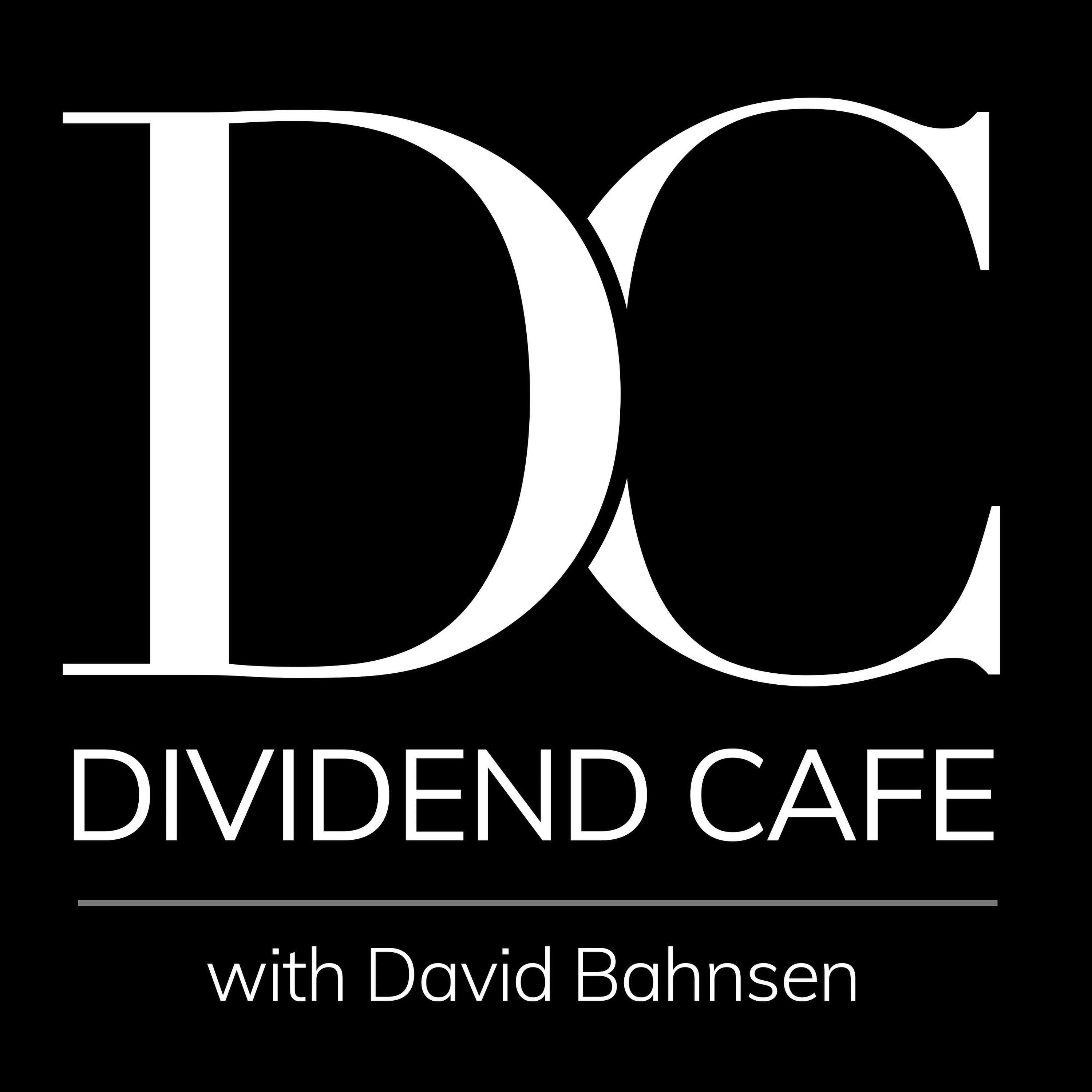Dear Valued Clients and Friends,
Welcome to the final month of 2019! I. Love. December. I love it no matter what the market does. I love it no matter what the news cycle is doing. It is just a wonderful time of year, and I have done my best to bring in this special month with a special Dividend Cafe – covering all the ups and downs in the market this week, really meaty stuff on the trade war, the most important thing I could ever say about “perma-bears,” the timely reality under-pinning dividend growth, and a really crucial economic lesson. I think this is the best Dividend Cafe of the year (okay, maybe I say that too much), but jump on in and let’s get in the December spirit …
Dividend Cafe – Podcast
Dividend Cafe – Video
China is not paying for it
The ISM Manufacturing Index for November contracted yet again, and actually contracted more than had been expected. Inventories and New Orders both suffered. This is the fourth month in a row reflecting a contraction of planned manufacturing operations. The President also announced additional tariffs on Brazil and Argentina. The market dropped 200 points Monday around this business economy trade-related challenges.
On Tuesday the market dropped nearly 300 points after President Trump claimed: “he may wait until after the election to get [a phase one] trade deal done.”
The incomplete resolution around the preliminary China/trade issues looms over the market, but perhaps more significantly, looms over the election.
So did the trade deal really come under fire this week?
Anyone paying any attention to any part of national life knows that no one can really predict what President Trump will do about anything. My belief in August was that the President lost the upper hand with China in that they realized they could create a self-fulfilling prophecy by undermining his re-election efforts with the economic hangover that would come from trade instability. That changed rather quickly when they got a wake-up call that apparently a Trump election loss would not necessarily give them a better situation as the Democratic primary polls created unexpected results. The need to restore capital expenditures, avoid punishing consumers with expensive new taxes, and grow the agricultural economy (organically, no pun intended – not with subsidies) is a huge motivator for the President to get a deal done. The fact that some long-term re-structure of the U.S./China dynamic is now inevitable cannot be lost on the Chinese, who now realize a phase one deal with this President will stop the bleeding in their economy, and facilitate a better outcome than may otherwise be found.
So why the volatility Monday and Tuesday off of a few press conference comments, etc.? Because markets have priced such a high percentage chance of a phase one deal getting done that the slightest detraction from that creates a market response of some [pretty minor] magnitude. Markets were down a few hundred points at the beginning of the week before making half of that back on Wednesday. This is a minuscule percentage relative to the movement in markets since the trade picture improved in September.
And then there was one
You may recall my 2018 theme of the “two-headed monster” impacting markets – issues (uncertainty) around the Fed’s tightening (higher rates; balance sheet reduction) and the trade war. The mood in the market benefitted immensely (for good or for bad) by central bank capitulation to risk assets throughout the calendar year 2019, but now at the end of that rope, we are left with one issue predominantly impacting markets: The trade war. The Fed is sidelined, and right now three areas are heavily impacted by what will happen with this trade war:
- The stock market
- The economy (manufacturing, capital expenditures, business investment)
- The election
I believe all three categories will take their P’s and Q’s from the trade war movement in the weeks and months ahead.
Parasites are Not Good for You
There have been few classes of people that I have been more critical of throughout my career than those we call “perma-bears.” The cottage industry of book authors, newsletter writers, TV pundits, and other folks who don’t manage any real money who have perfected the business model of selling fear. Why do I say they don’t manage real money? Because a perma-bear who manages real money gets left broke, along with their clients. But in a cruel ironic reality, the most short-lived career you could imagine (running money for clients as a perma-bear) can be altered to one of the most recession-proof, dependable careers you could imagine – selling doom and gloom in print to a buying public who will never, ever lose their emotional connection to fear.
What I have most criticized over the years is the disingenuity of these clowns, who are perfectly happy to respond to a 4% drop in markets that followed a 400% increase in markets with an “I told you so.” It’s really something to behold – the dishonesty and arrogance of these people. Human negativity bias is never going away, and we should not be surprised that some people have found a way to monetize it.
But we should make darn sure our investment policy doesn’t touch these people with a ten-foot pole. That does not mean that there will not be negative periods to deal with or that we can construct a portfolio fully immune to the realities of volatility. It can’t be done. It won’t be done. And as I never tire of saying – our job is not to do such; it is to remind you that no one else can do such either!
There will be another recession. There will be another bear market. There is right now some degree of market volatility (not enough for our taste as dividend re-investors). And when real bad events come you can bet these people will come out of the woodwork with a new book and new message, never mentioning that the 20% decline they got followed a 400% increase, and that people lost a decade or more of time if they followed their advice. We believe “tail risk” events in the market need to be managed. We believe portfolios need to be actively given attention. We believe that risk management is crucial.
But investing for the end of the world has done one thing for hundreds of years: Create an end of money for the people doing it.
Did someone say dividend growth?
Actually, someone did, and it was me – saying the same thing I have been saying for years and years – which is that growing dividend income is a highly important metric in the health of a company and the health of a client portfolio. But there is something else to be said about dividend growth right now – something more timely: 65% of companies had higher dividend yields than the 10-year treasury yield at the bottom of the financial crisis; that number went to just 27% nearly a decade later as ten years of equity price appreciation lowered dividend yields across the board. But here’s the thing: The number is now 65% again – meaning, the same percentage of companies as at the bottom of the financial crisis are offering dividend yields above the 10-year bond. How is this possible, especially after a year of positive stock performance? Because corporate tax reform enabled a slew of dividend growth, and interest rates themselves collapsed. This has substantially increased the universe of eligible dividend growth companies and created a broader environment where the only investors who may want Treasury Bonds over Dividend Growth are those who don’t want growth, and don’t want income.

Let’s talk Safety while we’re at it …
A well-managed, well-diversified portfolio of dividend-growing stocks can generate approximately 4% right now. The “safe” rate in a Treasury is approximately 1.7% and even in BBB- rated bonds (just a notch above “junk”) is paying 3.1%. So we can get a starting-yield well above “safe” bonds and “risky” bonds, not to mention well above the S&P 500, and then from there achieve annual, consistent growth-of-dividend that puts offers escalating cash flow and the potential for price appreciation. It is one thing (meaning, a totally rational and wise thing) to pursue this approach even when the starting point in income may be less than bond alternatives or whatnot (knowing you will get a higher income over time with dividend growth). But when the starting point is itself superior????
We feel a responsibility to act on this and to define “safety” correctly.
One of these things is not like the other
We know a few things about the U.S. economy. We know unemployment is historically low. We know wages have been rising. We know consumer confidence is quite high. We know interest rates are historically low. And we know that consumers spent over $40 billion on new vehicles in November – $40 billion, with a “b.”
But we also know that auto loan delinquencies (90 days or more with no payment made) hit an all-time high in the third quarter (over $60 billion worth). How in the world can delinquent auto payments be so high with economic conditions so good? The answer is that the underwriting for sub-prime auto loans and the securitization market therewith has been atrocious. It is a side effect of easy and flowing credit – deterioration in quality. It does not say nearly as much about the economy as it does the credit market.
Excess credit that leads to bad money loans is not good for anyone and leads to bad things.
Getting back to trade realities …
After-tax, after-inflation disposable income is a huge barometer of a healthy economy, and it is directly connected to the feel-good parts of the economy (primarily consumer spending). This income growth was on fire for the first two and a half years of the Trump Presidency, led by tax cuts, low inflation, low unemployment, and a healthy economy. But that number has turned sharply lower as of late, primarily because of declining farm income. This is a trade war casualty with political and economic ramifications.

* Strategas Research, Policy Outlook, Dec. 4, 2019, p. 4
Why do I say political ramifications? This is a fascinating chart. You have two Presidents that did not win a second term since 1964 – Carter, and Bush I. They are the only two Presidents who had sub-1% real disposable income growth when it was time for their elections. All who had higher? They were re-elected.

* Strategas Research, Policy Outlook, Dec. 4, 2019, p. 4
Economic refresher of the week
Will artificially low-interest rates provoke economic growth? No, artificially low-interest rates hamper sustainable economic growth. Sustained interest rates below their natural rate incentivizes the leveraged purchasing of pre-existing assets, not the productive investment into new assets that the economy needs. Over time the result is to hamper productivity and distort markets (creating “mal-investment”). If low-interest rates were a cause for economic growth than one would think negative interest rates would create octane-level accelerated growth! And yet, the weakest economies in the world are the ones with negative interest rates. Anyone interested in healthy economic growth must be interested in driving a higher Return on Invested Capital, not a lower market interest rate. It really is that simple. History is clear. Economic reality is clear.
Politics & Money: Beltway Bulls and Bears
- A couple quotes this week from senior Trump economic advisors. The first from Stephen Moore, who helped write the Trump tax bill: “If the economy starts to falter in 2020, Trump can’t win. There are just too many people who don’t like him but would otherwise vote for him in a good economy. … And Trump knows that. He gets that. He knows he needs a strong stock market and a strong economy. And getting a China phase one deal done and getting USMCA done would significantly reduce the threat of any kind of slowdown or recession in 2020.”
**************
- And the second from Trump’s National Economic Council Director, Larry Kudlow: “There are a lot of different estimates around but several, including the Council of Economic Advisers, have suggested that a satisfactory China deal plus USMCA could add almost 1 percent to next year’s GDP. That’s a difference between a 2 percent economy and a 3 percent economy and that’s very powerful.”
I will leave it to you as readers to determine if the administration understands the need for a China trade deal to boost the economy and the President’s re-election efforts.
- California Senator, Kamala Harris, dropped out of the race this week. Her polling was small enough that where her voters go will not likely move the needle much, but I would imagine more of her voters will go to Warren And Sanders than Biden or Buttigieg (as she ran in a much more leftist lane than a moderate lane).
- Senator Warren has, no doubt, lost some of the polling momentum that she had in October. But it is worth noting: Her $26 million of cash on hand is plenty enough to keep her in the race for months longer, and is several million more than Buttigieg, and nearly triple what Biden has on hand. I fully expect her to be in this race for quite some time in a very competitive position, even if not the leading one.
Chart of the Week
The tariffs that went into effect in 2018 were the least levered to the consumer possible … That all changes if the December tariffs do, in fact, go through. From laptops to cell phones to toys a lot of changes if the next round of tariffs goes through.

* Peterson Institute, November 2019
Giving Day
You may have noticed that there was a huge push across society this week to “give” to various charities as social media and national marketing efforts focused on a giving and philanthropy message the middle of this week, resulting in pretty impressive additive donations to a variety of charities. We’d like to highlight some of the charities that mean a lot to you, so please email us with particular organizations and causes that you believe in. We won’t use your name, but we’ll use the footprint of Dividend Café to shine a light on worthy causes, or at least make our readers aware of various organizations they may want to consider themselves!
Quote of the Week
“I strongly believe, for all babies and a significant number of grown ups, curiosity is a bigger motivator than money.”
~ Elwyn Berlekamp
* * *
I really do hope you found this week’s Dividend Cafe beneficial. I particularly enjoyed writing it as I always do when I get a few hours on an airplane of interruption-free focus.
Check out our new big hire here as we build out the best financial planning department we can imagine!
And reach out with any questions, any time. Tis’ the season …
With regards,

David L. Bahnsen
Chief Investment Officer, Managing Partner
The Bahnsen Group
www.thebahnsengroup.com
This week’s Dividend Café features research from S&P, Baird, Barclays, Goldman Sachs, and the IRN research platform of FactSet












